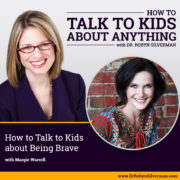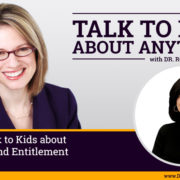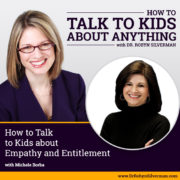Good morning! Aren’t Tuesdays fun?
For one thing, they aren’t Mondays—and for another, another episode of How to Talk to Kids about Anything is available! And you know what? THIS Tuesday is double the fun because we have TWO episodes available for you as an extra bit of love for you this week.
***First, we have How to Talk to Kids about Empathy and Entitlement by the amazing best-selling author & Today Show contributor, Dr. Michele Borba.
Based on her new book (softcover version out TODAY!), UnSelfie, Michele provides us with outstanding tips and scripts to raise empathetic, caring kids in an “all-about me” world. Michele has traveled widely and studied this topic for years—you don’t want to miss it!
“Once you realize you can nurture empathy, that our children are hardwired for it, you’ll look for dozens of just simple little daily moments to weave it in, take it up, and let your children know it matters. That’s how we produce a better generation of kids: A group of children who are unselfies, who think we, not me.” ~Dr. Michele Borba
***And, as a bonus, for anyone who has a pet or is suffering from pet-loss grief, we have How to Talk to Kids about the Death of a Pet. Best-selling author, Wendy Van de Poll, provides tips to help adults know how to help a child grieve when a pet dies as well as what to say to a child when a pet is sick and death is imminent. She also provides ways to help support a child in moving forward to engage in positive memories to help heal the grief.
The relationships that children have with animals are purely magical.” ~Wendy Van de Poll
You can get any of the podcasts on my website as well as on iTunes, Stitcher and other podcast delivery sites.
I can’t wait to hear what you think! And if you love this episode like I did, it would be so awesome to have you subscribe, rate and review it on iTunes so that others learn all about it. And please, feel free to share it!
Happy Listening!


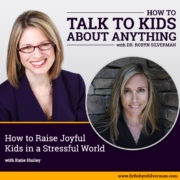
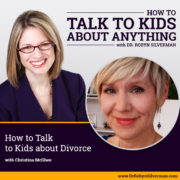



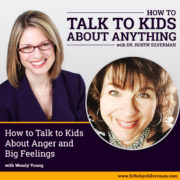
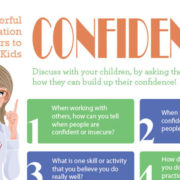
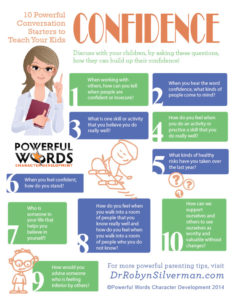 Do you want your children to learn how to be confident but you aren’t sure how to start the conversation? The Powerful Word of the Month for June is Confidence! Confidence us a combination of trust, conviction and assuredness. Confident people are aware of their strengths (but don’t brag about them) and they also know their weaknesses and what they need to work on (but don’t shame themselves). They have a feeling of inner certainty and overall, believe in themselves.
Do you want your children to learn how to be confident but you aren’t sure how to start the conversation? The Powerful Word of the Month for June is Confidence! Confidence us a combination of trust, conviction and assuredness. Confident people are aware of their strengths (but don’t brag about them) and they also know their weaknesses and what they need to work on (but don’t shame themselves). They have a feeling of inner certainty and overall, believe in themselves.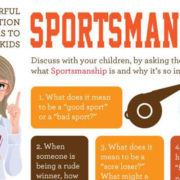
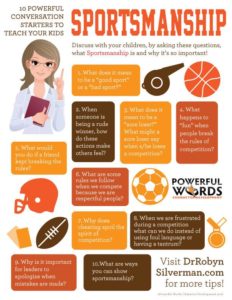 Sportsmanship, showing respect for the rules, the participants and the spirit of competition, is an important powerful word all kids (and adults) must learn when competing with others. Given that May is Sportsmanship month for Powerful Words Character Development, this is a great time to discuss sportsmanship with your children.
Sportsmanship, showing respect for the rules, the participants and the spirit of competition, is an important powerful word all kids (and adults) must learn when competing with others. Given that May is Sportsmanship month for Powerful Words Character Development, this is a great time to discuss sportsmanship with your children.